ADAPT Loddon Mallee respects that First Nations’ people have ongoing cultural obligations to their Country. We commit to enabling self-determination for First Nations’ people and recognise their inherent rights and obligations to care for and heal Country, as their ancestors have done for millennia.
First Nations’ communities have been effectively managing the lands and waters, and adapting to natural climate changes, for thousands of generations. Since European invasion and colonisation, the Western approach to natural resources management has been the dominant one.
The high spiritual and cultural toll of colonisation is like to be further exacerbated by man-made climate change through the further destruction of cultural sites (for example, as a result of increased bushfires), the disappearance of spiritually important species (such as totem animals), and of plants and animals used for traditional food, medicine and other cultural practices.
First Nations’ people may also be experience disproportionally high physical heath impacts due to the increase in heatwaves, emergency events, and poor air and water quality.
With so much at stake, it is vital that we invest in the capacity of local First Nations’ people to care for and heal Country in a changing climate. Our region is fortunate to have the largest population of First Nations’ people in Victoria, with thousands of significant cultural sites. With their deep intergenerational knowledge and ongoing connection to Country Aboriginal knowledge has already been critical in supporting climate adaptation actions, particularly in the natural resource management area, such as cultural burning for bushfire risk reduction. We need to provide further authorship to Traditional Owner groups and First Nations’ people living in the region to identify and implement their own responses to climate change. There are also many opportunities to learn from and enable the application of traditional ways of working on Country, while respecting Aboriginal ownership of that knowledge. The groundwork for how we might best approach this is integrated through this plan.
Below is a summary of objectives and priority actions in the Climate Ready Plan that support caring for and healing Country in a changing climate.
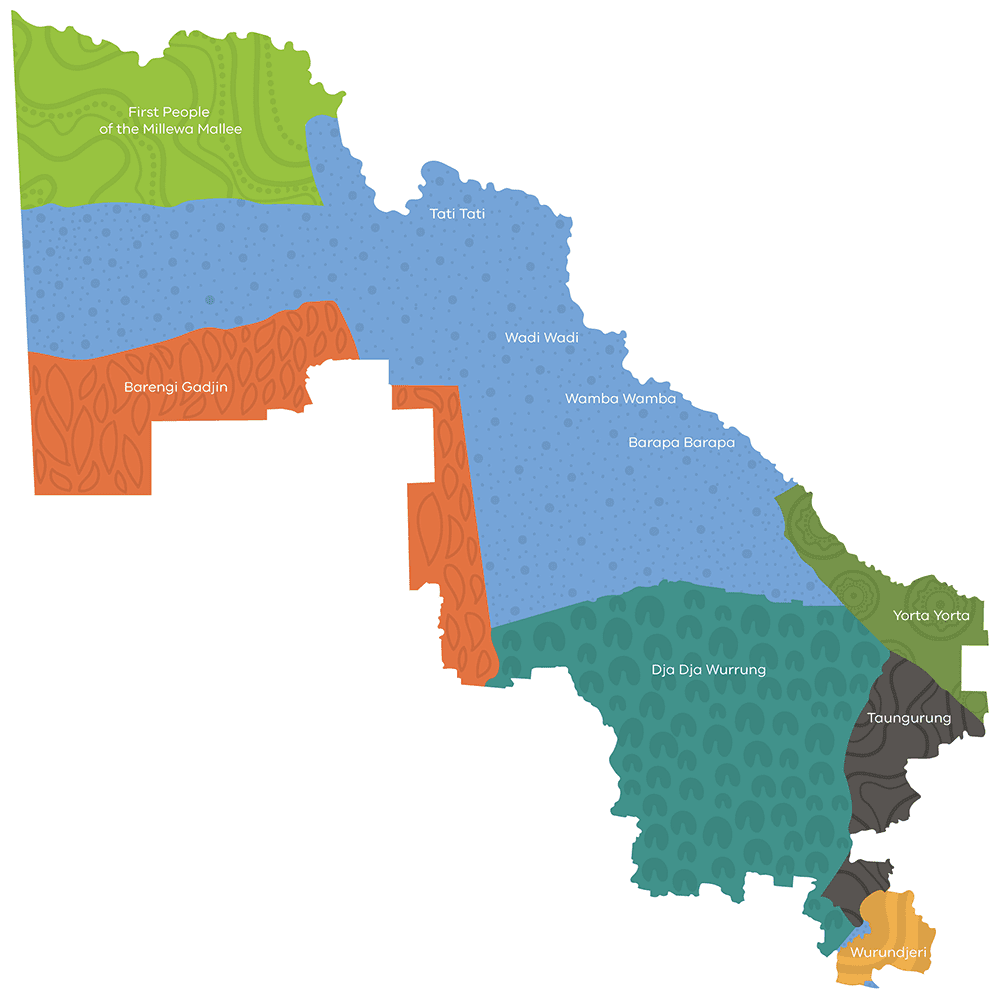
Caring for Country in a Changing Climate micro-funding
Caring for Country in Changing climate is an ADAPT Loddon Mallee micro-funding program supported by the Department of Environment, Land, Water and Planning (DELWP).
This program aims to support Aboriginal communities and groups in the region to undertake activities that involve:
- Planning or acting on climate change impacts in areas that are a key priority for your community and Country? (example include: climate impacts on natural resource management, cultural sites and practices, physical and mental health and wellbeing, vulnerability to extreme weather events such as bushfire, heatwaves, floods etc)
- Gathering or applying traditional knowledge and ways of working on country to collectively address climate change impacts on people and country.
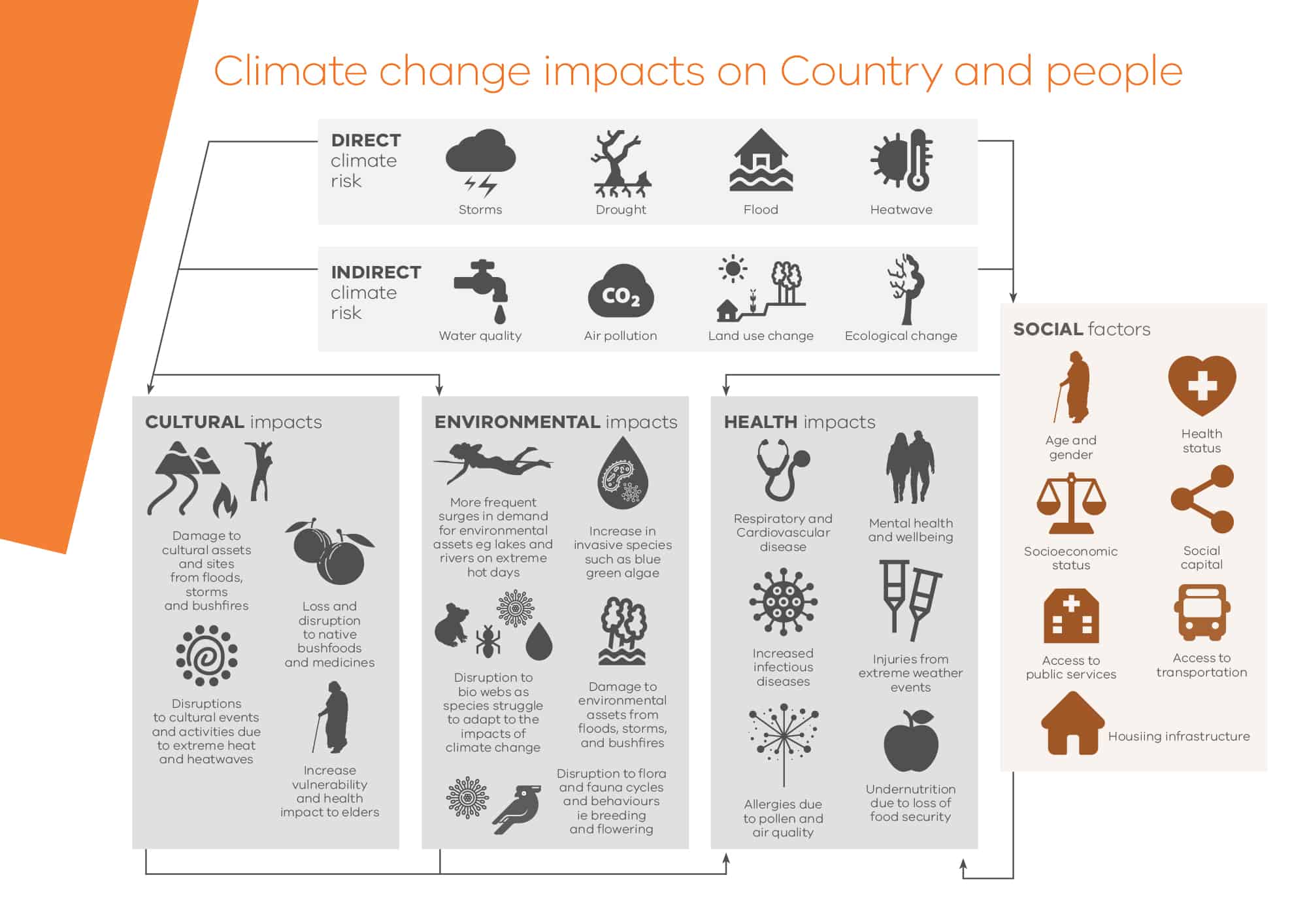
Funding available
- Up to $10,000 for local activities with a single Aboriginal group or organisation
- Up to $20,000 for regional activities with multiple Aboriginal organisations or groups
This is not a competitive grants process – funding will be awarded after consultation with the ADAPT Loddon Mallee team to projects that meet program objectives.
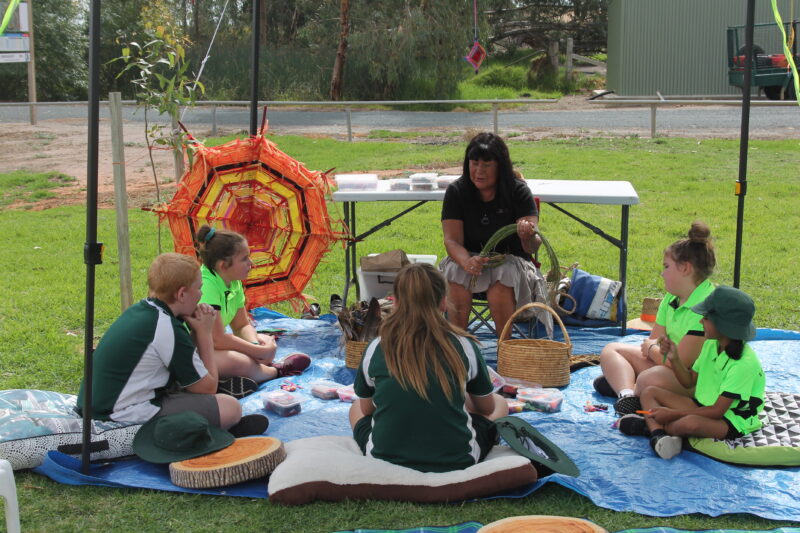
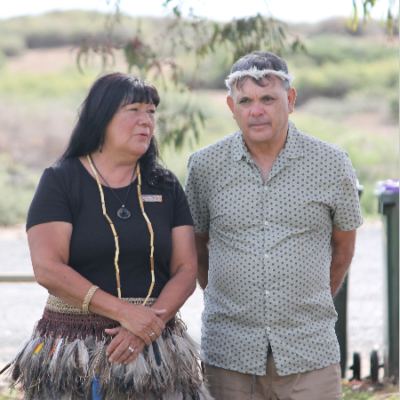
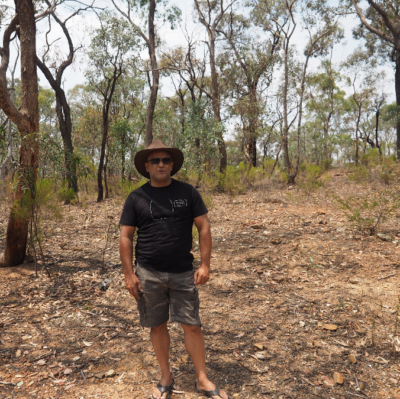
This program is part of the ADAPT Loddon Mallee Program that aims to identify priority adaption actions while building leadership capacity, climate literacy, knowledge and supporting networks and partnerships across the region.
From funded activities ADAPT Loddon Mallee wants to better:
- Understand how Indigenous knowledge can help all Victorians to adapt to climate change (with respect to Indigenous ownership of their own cultural knowledge).
- Understand how Aboriginal communities in the Loddon Mallee can have a greater say in matters affecting their community and their country, of which climate change and adaption is part of.
- Understand how we can empower and provide authorship to Aboriginal communities to identify and implement their own responses to climate change, as only they are in a position to determine the best solutions for their unique needs, interests, and circumstances
- Identify key activities to support in the future
- Provide a platform for Aboriginal communities to share their needs to peers, decision makers and financiers
Who can apply?
Eligible activities must either be led by or implemented in partnership with at least one Aboriginal owned organisation or corporation In the Loddon Mallee region – See map below.
- In addition, to be eligible for funding, applicants must be:
- An incorporated body, cooperative or association (including business associations), and
- Financially solvent.
- Other organisations, for example education institutions or private sector organisations, are also eligible to apply for funding provided they are partnering with a traditional owner corporation, Aboriginal community group or not for profit organisation, and the activity is for public benefit and not solely for private/individual gain.
![]() We acknowledge and respect Victorian Traditional Owners as the original custodians of Victoria’s land and waters, their unique ability to care for Country and deep spiritual connection to it. We honour Elders past and present whose knowledge and wisdom has ensured the continuation of culture and traditional practices. We are committed to enabling self-determination for all Aboriginal people and aim to work closely with the Aboriginal community to drive action and improve outcomes especially in the context of a changing climate.
We acknowledge and respect Victorian Traditional Owners as the original custodians of Victoria’s land and waters, their unique ability to care for Country and deep spiritual connection to it. We honour Elders past and present whose knowledge and wisdom has ensured the continuation of culture and traditional practices. We are committed to enabling self-determination for all Aboriginal people and aim to work closely with the Aboriginal community to drive action and improve outcomes especially in the context of a changing climate.



